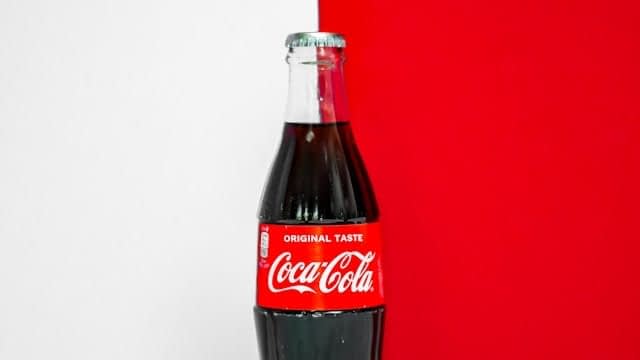The latest controversy shows the power that social networks can have in shaping public opinion and influencing brands. The Coca-Cola Company (NYSE: KO) has come under fire from critics after protests over the alleged firing of Latino workers went viral on TikTok. The campaign, which has gained momentum in recent days, calls for a boycott of the company’s products, which could potentially impact its sales and stock value.
What’s at the heart of the controversy?
The protests began when activists and influencers on TikTok accused Coca-Cola of not only firing Latino workers, but also of working with ICE to deport them. They claim that Coca-Cola has laid off more than 1,000 Latino workers in Texas. Adding to the backlash against the company is the fact that US President Donald Trump’s favorite soda is Diet Coke. The brand even gave him a special edition bottle to mark the start of his second term.
Behind the allegations is the ‘Latino Freeze’ movement, which calls on individuals to refrain from spending and instead support Latino-owned businesses. Organisers of the movement believe that by harnessing the significant economic power of the Latino population, which makes up approximately 20% of the US population, they can bring about a change in corporate practices.
Viral videos using the hashtag, which have received millions of views, have criticized Coca-Cola for putting profits before workers and that the alleged layoffs are having a negative impact on local communities that depend on the company economically. One video shows a family taking a large bottle of Coke and pouring its contents down the drain, while others show popular stores with empty soda shelves except for Coca-Cola, which no one buys.
How does Coca-Cola react?
The company has responded to the protests with restraint. In an official statement, it said it is committed to promoting diversity and inclusion in its work processes and that it is constantly evaluating its business model to remain competitive. Coca-Cola also says it continues to support local economies in Latin America through investment and social responsibility programmes.
As the boycott gains momentum, concerns are growing about its potential impact on Coca-Cola’s financial performance. Analysts say the company could face pressure on its image, especially at a time when companies are increasingly being judged not only on their financial performance but also on how they treat employees and their social impact.
How could the company’s stock be affected?
In the short term, we can expect some volatility in Coca-Cola stock. In similar cases of public protests, it is often the case that investors react by selling shares due to concerns about reputation and possible declines in sales. Yet Coca-Cola has historically proven to be a stable investment with a resilient business model and a strong brand.
According to Wall Street analysts, the impact on the share price may be temporary if the company can manage the situation properly and communicate effectively with the public. However, if the boycotts gain more support and translate into a drop in sales in Latin America, it could be a signal of caution for investors. After all, Coca-Cola is one of the most important brands in the Latin American market, especially in Mexico, where per head consumption of the beverage is the highest in the world.




